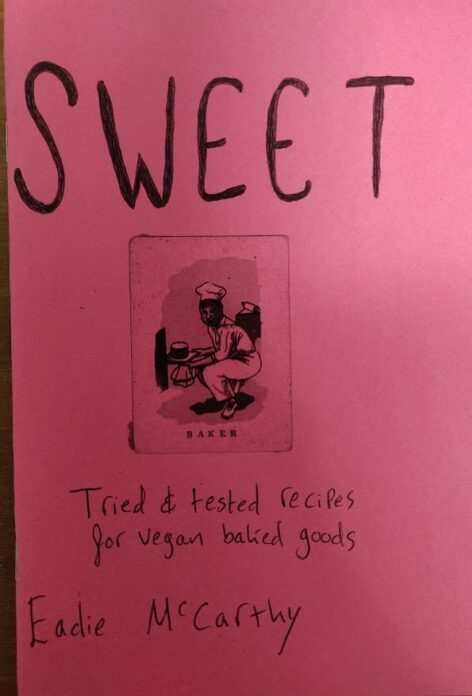The May Days Barcelona 1937
£4.50
Eyewitness reports of the crushing counter-revolution from Augustin Souchy, Jose Peirats, Burnett Bolloten and Emma Goldman. This ‘minor’ incident in the Spanish Civil War claimed more casualties in the armed struggle that took place, than in the first week of the military uprising in Barcelona on July 19th 1936.
Only 2 left in stock
Description
On July 19th 1936, the Spanish generals rose against the people. The workers of Barcelona, under the leadership of the anarchists. succeeded in smashing the fascist rising within two and a half days. The anarchists did not want to conquer power for themselves, nor did the unions seek to establish a dictatorship. As in all other parts of Spain, an anti-fascist united front was formed. It ranged all the way from the various republican tendencies of the bourgeoisie to the most extreme tendencies of the proletariat – the anarchists. Naturally there was not complete harmony among the various tendencies composing the anti-fascist block, either with respect to aims or choice of means. Some wanted merely to smash the power of the generals and the clergy, but, otherwise maintain a bourgeois capitalist society; others sought a fundamental change in all phases of social life. High finance was on the side of the fascist generals. With the defeat of the generals, they lost their positions of power. The workers’ organisations assumed the functions of organising public life. The economic transformations took the form of socialisation. All big enterprises were either collectivised or socialised. The former owners of these big enterprises can offer no more resistance. However, the petty bourgeoisie, even though it did not have the strength to resist the new developments during the first months of proletarian victory, did not accept completely the new order.In the course of this development divergent trends began to appear. The masses of the workers were for the most part organised in the anarcho-syndicalist organisation. the CNT; the petty bourgeoisie, during the months that followed the 19th of July, affiliated itself with the UGT. Not only workers, but traders, owners of small shops, market salesmen, etc., joined the UGT. The developments in Spain took a course totally different from that of other countries. Forms of organisation arose, especially in Catalonia, which had been seen nowhere else. In all other European countries, especially in the democratic ones, the political parties form the currents of public life, but in Catalonia the trade unions have this function. This is due to the syndicalist character of the Spanish labour movement. In the spirit of these traditions, the petty bourgeoisie also organised themselves into trade unions.There is a fundamental difference in the workers’ organisation, the CNT, and that of the petty bourgeoisie, the UGT – in whose ranks workers have also been organised – both as to politics and as to their final goal. The UGT accepted collectivisation only under compulsion; they wanted nationalisation, that is, the power of control to lie in the hands of the state and the political parties represented in it rather than in the hands of the workers’ organisations. Friction arose, leading to collisions. Among the workers themselves, in the factories and in the management of enterprises, complete understanding and harmony reigned. Only in political questions did opinions differ.When the CNT entered the Catalan government on September 28th 1936, after the dissolution of the Anti-fascist Militia Committee which had been functioning for two and a half months, it took over, officially, the Department of Food Supplies. A central department for food supplies was created under the direction of the syndicalist Juan Domenech. He established an internal trade monopoly for the control of prices. The provisioning of food for the cities was to be taken over entirely by the unions of the transport workers and the various branches of the food industry, who were to substitute – in accordance with a special plan – for the big enterprise and the small traders who had controlled the food industry until then. The small traders became – as members of their unions – equal to the workers of town and country. Or, rather, they were supposed to become such. Continuous conflicts arose between the members of the CNT and those of the UGT, over ways and means of conducting the work. The conflicts created a scarcity of certain food articles. Things became more expensive; sharp political discussions arose as to their cause, and as to the value of the methods.Three months later, December 16th 1936, a new Catalan government had to be organised. This crisis was of a purely political character. The POUM, Workers Party of Marxist Union, was being viciously attacked by the leaders of the UGT, official communists for the most part. They declared the POUM, because of its Trotskyist tendency, a counter-revolutionary party. Soviet Russia herself, through her official representatives, took part in this campaign. The crisis was created in the Generality in order to remove the POUM, whose leader, Andres Nin, was Minister of Justice, from the government. The CNT was opposed to this political manoeuvre but, being in a minority in the coalition government, the POUM was expelled from the government.The dictatorial aims of the communists manifested themselves clearly in the new order. The communists had always been an unimportant minority in Catalonia, as well as in the rest of Spain. By a series of clever manoeuvres their influence increased in Catalonia. They united with the Socialist Party of Catalonia (PSUC), which joined the 3rd International. Although they called themselves socialists, they had the support of the communist organisations, and succeeded in winning the new party over to their line. To the communists of the PSUC the POUM signified a rival party that had to be eliminated from the scene. The Soviet Union strongly supported these manoeuvres. Some shipments of food arrived from the USSR. They also sent some armaments. The propaganda machine started using this support for their political purposes. The POUM began to lose their influence.The influence of the PSUC grew in proportion as that of the POUM declined. The differences between the two parties were extended into the UGT. The members of the POUM belonged to the UGT and even held a number of important positions there. The PSUC wanted to expel them from their posts. A bitter conflict began between the two Marxist brothers for control of the trade unions, a conflict such as is known only too well in many other countries. The political atmosphere among the anti-fascists in Catalonia became ever more unbearable.The CNT acted loyally toward the anti-fascist cause when the new government was formed. It wanted to stop fighting among the political parties. It made the proposal and succeeded in having it accepted, that trade unions, and not the political parties, should be represented in the new government. These trade unions were the CNT and the UGT. The Catalan Left, as a special expression of the Catalan Nation, and as partisans of the presidency, was also allowed to participate.To get the Ministry of Defence, until then in the hands of the Catalan Left, the CNT gave up the Department of Food Supplies to the UGT. Immediately after taking over the Department, Juan Comorera, the new Minister, erased, with one stroke of his pen, the entire work of his predecessor: the inner trade monopoly, the fixed prices for articles of food, was wiped out. Comorera’s aim was to break the power of the unions. He therefore wanted to turn over the function of supplying food to private companies. Thus small proprietors, petty traders and tenants were able to make greater profits through higher prices. The scarcity of bread became chronic. Things became more expensive and the masses more discontented. Economically, as well as politically, the fuel had been assembled, and demagogy helped set it alight.On October 22nd 1936, a pact was ratified, by the CNT-FAI on one side and the UGT-PSUC on the other. They agreed to a programme of minimum demands. Both organisations, especially the CNT, made concessions in the struggle against the rebel generals. The workers rejoiced over this pact, and a great mass meeting in the vast bullring of Barcelona, where all of the city workers were assembled, sealed it by acclamation.But there were those who still put their partisan interests above the interests of the proletariat as a whole. A campaign was begun against the CNT and the FAI of the same character as that employed against the POUM. The anarchists and syndicalists were held responsible for everything that did not function too smoothly. Even though the CNT-FAI gave up the idea of collectivisation in those sections where the small tenants were in a majority, and absolutely rejected the proposal for compulsory collectivisation, they continued to campaign against the CNT-FAI among the small tenants and peasants. They appealed to the property instinct, made the idea of collectivisation appear hostile to the lovers of property, and went so far as to denounce the advocates of collectivisation as enemies of the people.Such a malicious campaign had its effect. In January 1937, an insurrection arranged by the politicians broke out against the CNT-FAI in the town of Fatarella. The insurrection, as such, was unimportant; but it was symptomatic. Six months had passed since the victory over the fascists, six months of revolutionary development which led, and had to lead, towards socialisation. But certain parties wanted to reverse the trend of this development. They wanted a national war, not a social revolution. The slogan ’the war and the revolution’ for which the CNT-FAI stands, was opposed by the slogan of all the other political parties: ’First, we must win the war. Everything else, a new political order, establishment of social justice, etc., must be left untouched till the end of the war’.The conflicts became more intense. They wanted to manoeuvre the CNT-FAI out of their political positions. Blood flowed in Fatarella. Although both organisations issued a joint declaration regarding the events and their origin, the PSUC press continued its campaign of slander against responsible members of the CNT-FAI, ministers in the Generality, in connection with the outbreak. Certain elements of the Catalan Left and the Catalan Nationalists (Estat Catala) also joined in this insidious campaign.Grave discontent reigned among the workers. The revolutionary workers of Catalonia felt humiliated by the gradual curtailment of their revolutionary conquests after the 19th of July. The representatives of the CNT-FAI vigorously opposed the application of police measures to meet the discontent of the masses. The bourgeois elements, therefore, tried to remove the advocates of the syndicalists and the anarchists from their positions. The workers’ Patrols of Control, composed of those fighting elements who had smashed fascism in Catalonia on July 19th, had been functioning as anti-fascist guards, and were legalised as such. The majority of the members of these Patrols are members of the CNT, and when the UGT demanded equal representation with the CNT, to which they were obviously not entitled since they were not equal in membership in the region, bitter conflict sprang up again. The UGT members left the Patrols and devoted their attention to winning over the police to their side. Instead of building bridges of unity, they were widening the gulf that kept the proletariat separated.The communists and the elements of the Catalan Left, the Esquerra, started an intense propaganda among the existing police bodies: Assault Guards, Civil Guards and Catalan City Guards, a propaganda directed against all syndicalists and the anarchists. The latter had been demanding from the very beginning that the old police units be dissolved and replaced by a single body for public security. The other parties and organisations opposed it. Friction arose between the police and the workers’ Patrols. In some places fighting broke out resulting in a number of dead and wounded. The following is an example of the preparations being made by certain elements for a fratricidal war against the anarchists:On Friday March 5th 1937, a few individuals presented an order, signed by Vallejo, director of the arms factories, to the arsenal in Barcelona, to hand over to them ten armoured cars. The director of the arsenal found the document in order and delivered the cars. At the last moment doubts arose as to the authenticity of the order, and the director telephoned to Vallejo for verification. The document proved to be forged, but, in the meantime the armoured cars had been driven away. They were followed and observed to go into the Voroschilov Barracks, belonging to the PSUC, that is, the communists.Premier Tarradellas intervened. At first the barracks’ officer denied all knowledge of the deed. Only when threatened with a forced investigation of the barracks did they admit that the armoured cars were there.The purpose of thus stealing and hiding the armoured cars became more than clear to the people of Barcelona during the tragic May days.Premier Tarradellas issued a decree prohibiting the members of the various police bodies from joining any political parties or unions, which aroused great indignation among the workers. Special plenums of the CNT were held and the representatives of the CNT in the government were instructed to demand the annulment of the decree. At the same time the workers’ organisations of the CNT demanded the reform of the Department of Food Supplies and, therefore, the resignation of Comorera. A new crisis of the Generality was precipitated on March 27thThe solution to this crisis proved to be very difficult. The demands of the PSUC, hiding behind the UGT, became ever more arrogant. When, after a week of negotiations, a new programme for the government of the Generality had been agreed upon, the UGT broke it at the very last moment. Unity, so painfully achieved, was again spoiled. Companys, president of the Catalan Generality, created a provisional government with a peaceful coup d’etat. The syndicalists and anarchists would have been perfectly justified if they had rejected this arbitrary solution. They had proved their good will and patience; they could face public opinion; justice and sympathy were definitely with them. Yet, not to break the anti-fascist front, they swallowed this bitter pill too. On April 16th the crisis was finally solved, the CNT proving very compliant. They renounced their former demands, modified the desires of the proletariat by pointing out the necessities of the war against fascism, and urged them to concentrate their forces for the period after the defeat of the fascists.Comorera no longer headed the Department of Food Supplies, but the office itself remained in the hands of the UGT. The ministers of the CNT had also been changed. The syndicalists and the anarchists had done all they could to maintain the anti-fascist united front. They hoped that a new phase of development would begin now, a period of calm and relaxation behind the lines. False hopes.On April 25th, Roldan Cortada, prominent member of the PSUC was killed near Molins de Llobregat. With this lamentable act as a pretext, the PSUC tried, through their authority over the Public Forces, to take measures of repression against the sympathisers and members of the CNT and the FAI. And although they did not accuse us directly of having committed the attentat, they nevertheless tried, through their actions, to place the moral responsibility for the criminal attentat upon our organisations. Indignation spread over the entire province of Barcelona, both for the deed, and for the harsh measures of the police. The Director of Public Security, Rodriguez Salas, was responsible for these measures. His political career had been a varied one until then. He finally landed with the UGT. His actions against the CNT were considered as provocation’s. He had been conducting a struggle against the CNT for several months.A few days later the anarchist mayor of Puigcerda, Antonio Martin, and three of his comrades were shot. The members of the FAl became very indignant over the murder of their comrade, whom they all loved and respected as one of the best. Political tempers rose. The First of May was approaching. The negotiations between the CNT and the UGT for joint demonstrations failed, owing to the manoeuvres of the communists who controlled the UGT. Bitterness turned gradually into hate. Political passions dominated the scene.





